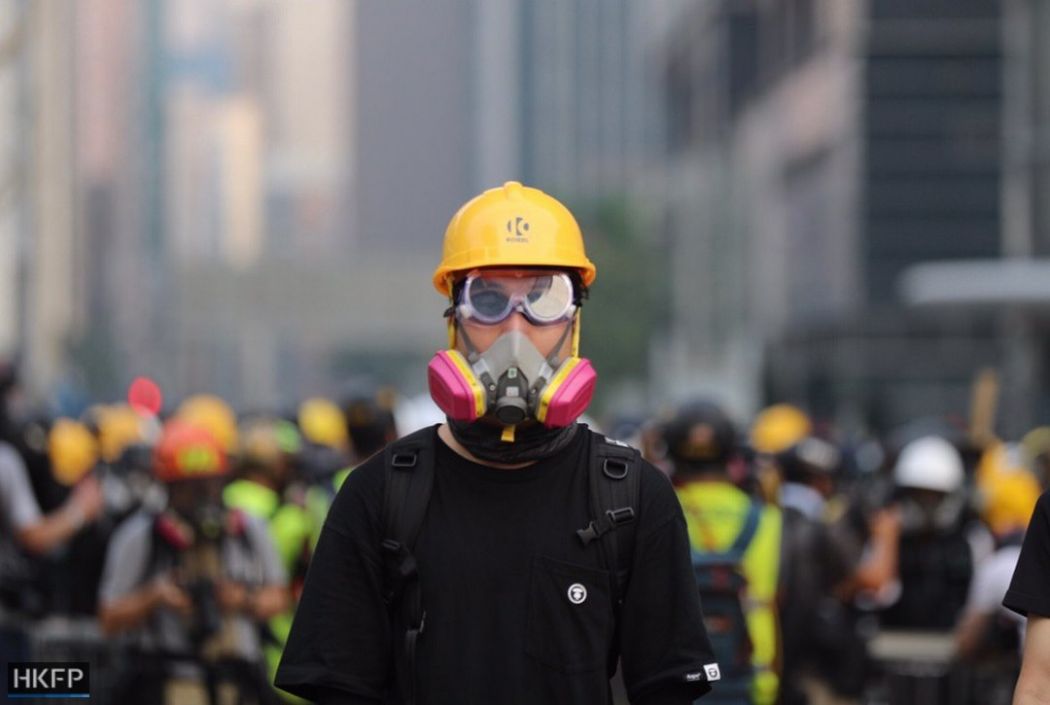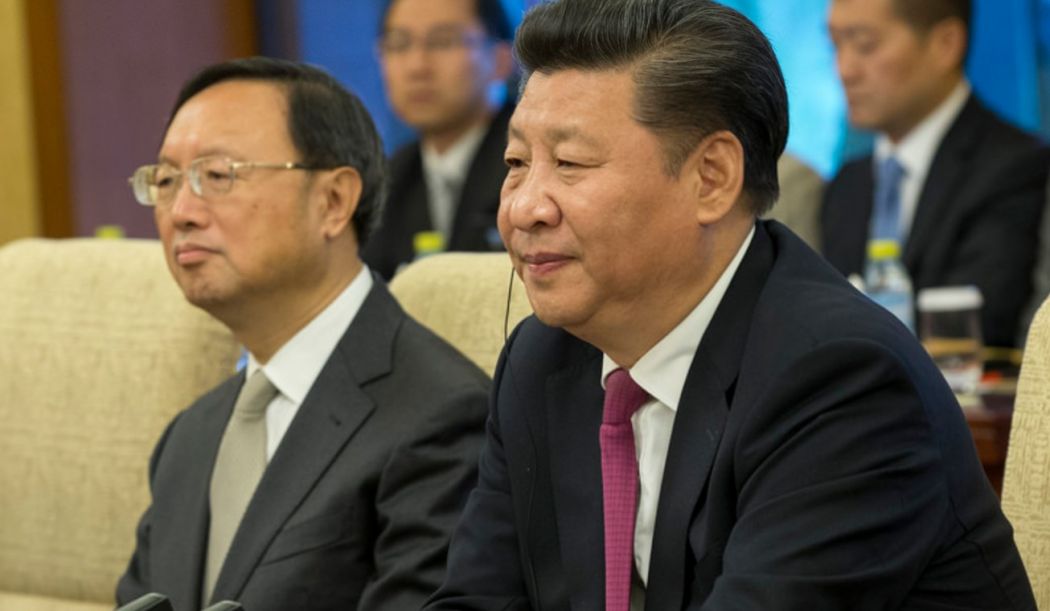Leaderless protest movements, like the one that has raged in the streets of Hong Kong for the past 13-odd weeks, have some clear advantages over their more traditional counterparts, which often rely on charismatic standard-bearers to fire up their followers.
After all, those inspirational figures can be easily targeted by authorities for harassment, punishment and even jail, dispiriting their acolytes and deflating their cause.
This certainly happened in the case of the youthful leaders of this city’s 2014 pro-democracy Occupy protests. Joshua Wong, Nathan Law and Alex Chow have all done prison time, as have two of their Occupy elders, Benny Tai and Chan Kin-man. And Wong, along with eight other activists and lawmakers arrested Friday on a range of charges for their involvement this summer’s protests, may soon find himself behind bars once again. But this latest round-up of prominent opposition figures is more likely to inflame than to cow.

This time around there are no poster boys or senior organisers.
At present, as a summer fraught with anger and violence threatens to turn into an autumn of more of the same and perhaps worse, the Hong Kong police have arrested more than 900 people for involvement in anti-extradition demonstrations.
Police have fired off countless rounds of tear gas, pepper spray, beanbag projectiles and rubber bullets. A fortnight ago, for the first time, water cannon were deployed and officers flashed their revolvers at protesters and surrounding journalists during a chaotic night in Tsuen Wan, with one officer firing a warning shot into the air.
Yet this faceless movement of masks, goggles and makeshift weapons and shields burns on with no end in clear sight.
No matter what you think of their five demands and their hit-and-run guerrilla tactics, the protesters have now succeeded in sustaining their campaign for longer than the 79-day Occupy movement.

They have also focused international attention on Hong Kong’s explosive social and political divisions and shone a bright light on the profound disconnect that many of its nearly 7.5 million residents feel toward the motherland after 22 years of Chinese sovereignty following the 1997 handover from British rule.
Too bad, then, that another leaderless group in the city, the Hong Kong government, cannot make any similar claims of success.
For much of the summer, while protesters anonymously planned strategy and logistics on the Reddit-like forum LIHKG, Chief Executive Carrie Lam and her ministers virtually disappeared from public view and offered no plan, no strategy for resolving the crisis.
As Lam and her team dithered in the shadows, what began as a million-person rally against proposed legislation that would have allowed criminal suspects in Hong Kong to be extradited to the mainland morphed into a full-blown anti-Beijing cry for greater democracy and protection of personal freedoms.
Indeed, for several weeks—crucial weeks during which her city roiled in unrest—the chief executive was so reticent and remote that she might as well have taken a leave of absence. Her underlings went largely quiet as well, and the beleaguered and demoralised Hong Kong Police Force was left to deal with the violent consequences of governmental incompetence and neglect.

Who is angrier now—the protesters or the police? It’s hard to tell, but the heightened antagonism between the two becomes increasingly dangerous.
If the escalation continues, who will be the first person to die—a protester, a cop or an innocent bystander? It’s anyone’s guess.
We don’t want to go there and, if that’s where we wind up, Lam and her non-governing team will have blood on their hands for their dereliction of duty and abdication of responsibility.
Granted, radical elements of the protest movement have moved well beyond the pale of peaceable demonstration to outright physical confrontation with the police and use of petrol bombs. But the total lack of government response to any of the protesters’ demands is what has fuelled this violence and galvanised the radicals.
Also true, three of these demands are unrealistic on their face.

A Hong Kong government clearly on puppet strings pulled in Beijing is not going to grant amnesty to those who have been arrested for acts of violence and unlawful assembly often directed against central government authorities.
Nor is it likely to retract its characterisation of the June 12 protest—which, like several subsequent ones, came to a turbulent end—as a “riot.”
And you can also forget about Beijing granting universal suffrage to a city in which the Chinese leadership, from President Xi Jinping on down, is so widely loathed and disrespected.
The other two demands, however—that the extradition bill be formally withdrawn and that an independent inquiry be established to investigate allegations of police brutality—appear manageable and, if granted, could go a long way toward easing the crisis.

The first demand seems especially reasonable and easily granted since the chief executive long ago declared the bill “dead.” Yet here we are heading into week 14 of a protest nightmare that has transformed the streets of Hong Kong into battle zones and Lam, likely at the command of the central government, continues to scoff at this no-brainer concession which has widespread support throughout the city—from business leaders to barristers and solicitors to academics and the grass-roots.
Setting up an independent inquiry—another demand that, despite being dismissed as unworkable by former Court of Final Appeal judge Henry Litton, has also been endorsed across different sectors of Hong Kong—is more problematic because of fierce police opposition to such a move. But if the scope of the inquiry were broadened to include acts of violence by protesters as well as police, it might prove acceptable—or at least sufferable—to the force.
Unfortunately, last week, as Chinese state media placed unusual emphasis on the People’s Liberation Army’s annual rotation of troops in Hong Kong, Lam again showed no signs of making a single concession.
Instead, she pointedly refused to dismiss a report in the pro-government Sing Tao Daily that she was considering invoking the Emergency Regulations Ordinance, last used by the colonial British administration during the 1967 riots sparked by Mao Zedong’s harrowing Cultural Revolution across the border.
The ordinance would give her sweeping emergency powers of detention, deportation, censorship, appropriation of property and more without any legislative oversight.

That, like the prospect of PLA troops entering the Hong Kong fray, sounds very scary, so let’s hope it’s an empty threat. The international consequences of such dictatorial overreach would be calamitous for Hong Kong’s reputation as a free-wheeling financial powerhouse guaranteeing freedom of speech and assembly and rule of law.
It can’t happen.
Nevertheless, this is what titular leaders of titular governments say and do when their overlords provide them no other options.
Inspired by Hong Kong martial arts legend Bruce Lee, the protesters have adopted the mantra “Be water.”
Beijing and its current Hong Kong lackeys seem to have responded with a shibboleth of their own, “Be stone.”
Hong Kong Free Press relies on direct reader support. Help safeguard independent journalism and press freedom as we invest more in freelancers, overtime, safety gear & insurance during this summer’s protests. 10 ways to support us.

